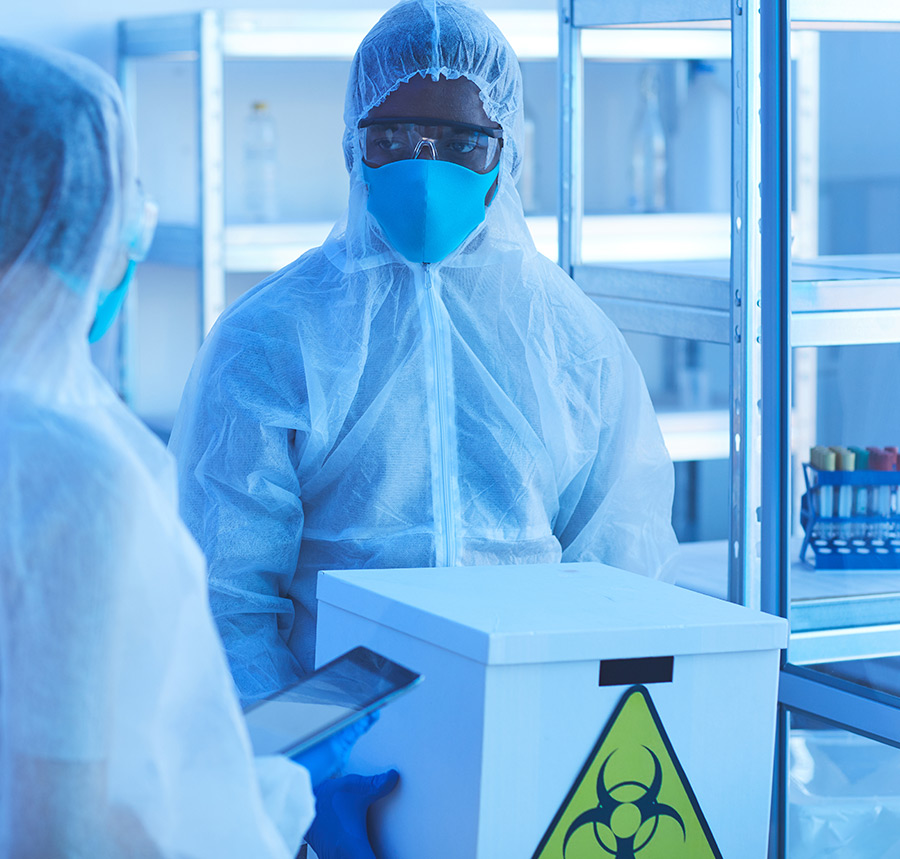Hospital waste posing an infectious risk is medical waste, contaminated by biological fluids such as blood and various secretions, or waste from environments and patients in isolation: gauze, gloves, cannulae, drainage, catheters, intravenous drips, masks.
Medical waste at risk of infection also includes all waste contaminated by infected faeces and urine, such as nappies, but also sharps waste such as needles, blades and syringes. All of these wastes must be managed, handled and disposed of according to precise procedures outlined in the legislation.
To identify and manage infectious medical waste, it is necessary to refer to the European Waste Catalogue (EWC) codes. In particular, the types of waste posing an infectious risk include those listed below:
1801 WASTES FROM MATERNITY WARDS AND WASTES FROM DIAGNOSIS, TREATMENT OR PREVENTION OF DISEASE IN HUMANS
1802 WASTES FROM RESEARCH AND DIAGNOSIS, TREATMENT OR PREVENTION OF DISEASE IN ANIMALS
Medical waste posing a risk of infection should be handled within the facility by Health Care Workers (HCWs) and should be disposed of in special containers, usually yellow, the halipacks. A sack must be placed inside the container and securely fastened to the edge of the container. Containers are made of cardboard for non-sharp and non-liquid waste (gauze, bandages, masks, etc.), rigid plastic for sharp and pointed objects (needles, blades, syringes) and in canister format for liquid medical waste.
Infectious hospital waste must then be transported as hazardous materials (Infectious Material) to a legally authorised sterilization facility. Sterilization consists of bioburden reduction in order to neutralise the risk of infection.
Zanetti Arturo is a disposal company offering its private, corporate and public customers a complete service for the collection, transport, recovery and disposal of infectious medical waste.
We handle all hospital waste contaminated with biological fluids, such as blood and secretions, or waste from infectious environments and patients in isolation.
Gauze, gloves, cannulae, drains, catheters, intravenous drips, masks, waste contaminated with infected faeces and urine, such as nappies, but also sharp waste such as needles, blades and syringes.
Zanetti also provides containers for the collection of medical waste, halipacks, as well as sterilization using a legally authorised plant.


ZANETTI ARTURO owns a sterilization plant in Mapello (Bergamo).
The plant has two feed lines, one for waste with disposable packaging and one for waste with reusable packaging, after being washed and sanitised in a specially equipped tunnel. Hospital waste, through the sterilization process, is transformed into sterilized waste that can be used to produce SSF (Secondary Solid Fuel).